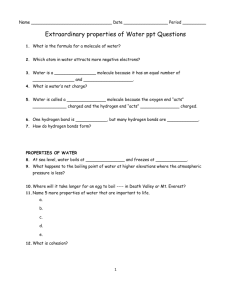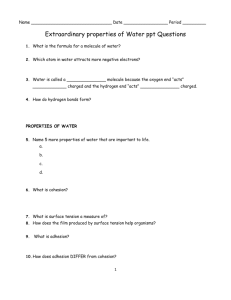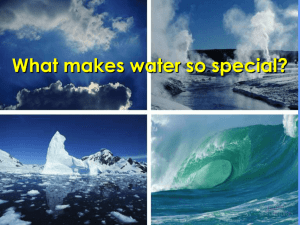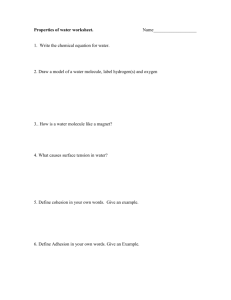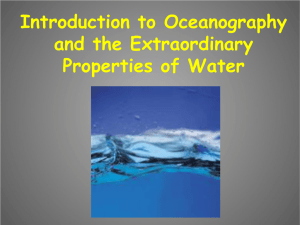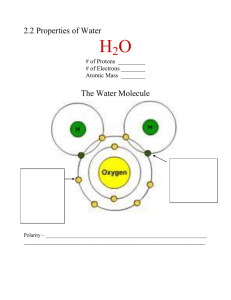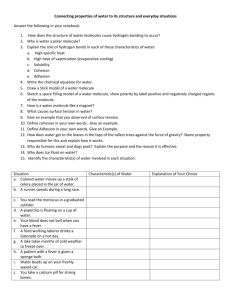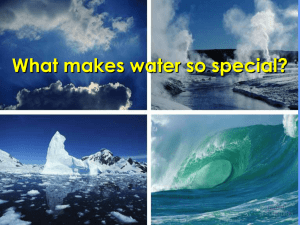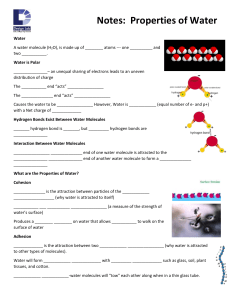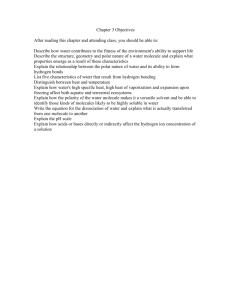Extraordinary properties of Water ppt Questions
advertisement
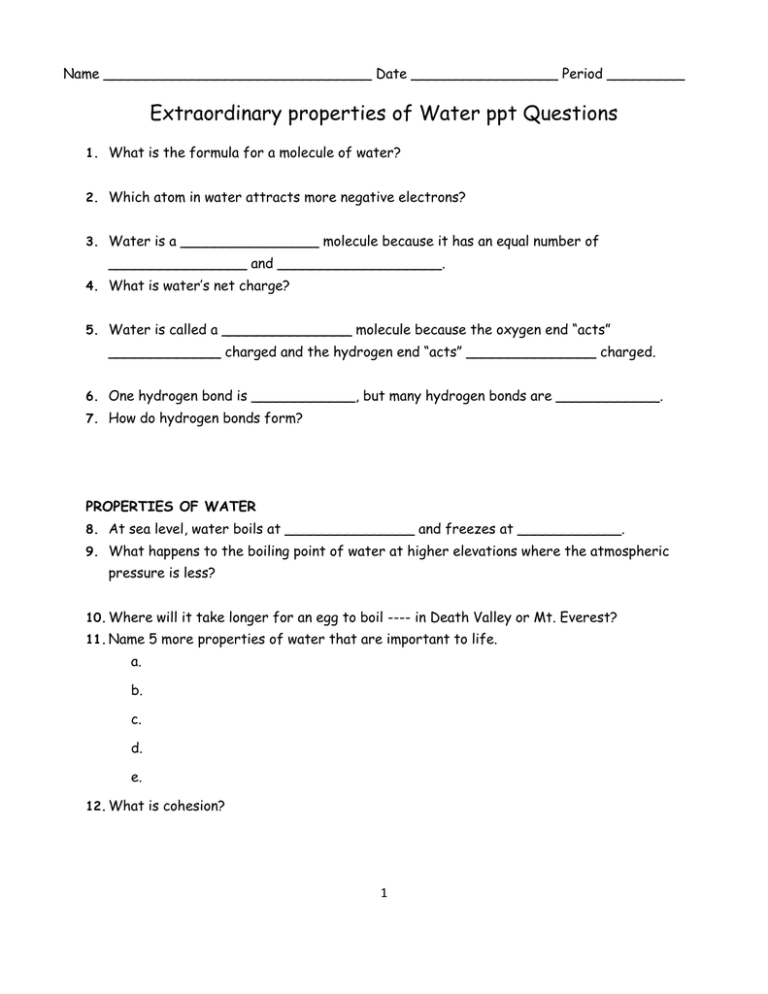
Name _______________________________ Date _________________ Period _________ Extraordinary properties of Water ppt Questions 1. What is the formula for a molecule of water? 2. Which atom in water attracts more negative electrons? 3. Water is a ________________ molecule because it has an equal number of ________________ and ___________________. 4. What is water’s net charge? 5. Water is called a _______________ molecule because the oxygen end “acts” _____________ charged and the hydrogen end “acts” _______________ charged. 6. One hydrogen bond is ____________, but many hydrogen bonds are ____________. 7. How do hydrogen bonds form? PROPERTIES OF WATER 8. At sea level, water boils at _______________ and freezes at ____________. 9. What happens to the boiling point of water at higher elevations where the atmospheric pressure is less? 10. Where will it take longer for an egg to boil ---- in Death Valley or Mt. Everest? 11. Name 5 more properties of water that are important to life. a. b. c. d. e. 12. What is cohesion? 1 13. Cohesion produces _________________ _______________ when one water molecule attracts other _________________ molecules. 14. What is surface tension a measure of? 15. How does the film produced by surface tension help organisms? 16. What is adhesion? 17. How does adhesion DIFFER from cohesion? 18. Adhesion produces _______________________ _______________ as water is attracted to and pulled into a tube. 19. What process in plants is due to capillary action (one word)? 20. Plants absorb water through their ____________ and use _______________ action or _______________ to move water upward against gravity to the leaves. 21. Name 2 other things observed in nature that are the result of adhesion. a. b. 22. Define specific heat. 23. Water _____________ a change in temperature and can absorb or release ______________ amounts of energy with very little temperature change. 24. What is heat of vaporization? 25. In order to evaporate, water must break its _______________ bonds. 26. When water evaporates from a surface, it removes a lot of ___________________. 27. What is water’s heat of vaporization? 28. In order for a gram of water at 100oC to change into steam at that same temperature, it must ______________ _______________ calories of energy. Therefore, which would contain more energy at 100oC, steam or boiling water? 2 29. How does water warm the Earth? 30. Why does ice float in water? 31. Frozen water forms _______________ holding the molecules at fixed distances from each other. 32. Which is denser ---- ice or water? 33. Define homeostasis. 34. List 5 ways that water helps maintain homeostasis. a. b. c. d. e. SOLUTIONS & SUSPENSIONS 35. Solutions and suspensions are two types of ________________ that both contain ______________. 36. The _________________ is the substance being dissolved and the _______________ is what the substance is dissolved in. 37. What acts as a “universal solvent” because it dissolves so many substances? 38. How does a suspension form? 39. What keeps particles suspended? 3 ACIDS, BASES, & pH 40. Write the equation for the dissociation (separation) of water and label the hydrogen & hydroxide ions? 41. What does the pH scale actually measure? 42. The pH scale ranges from ________________ with a pH of ______ being neutral. 43. Where are acids found on the pH scale? 44. Where are the bases found on the pH scale? 45. Each pH unit represents a factor of __________ change in concentration. 46. How much stronger is a substance with a pH of 3 than a pH of 6. Show how you got your answer. 47. Acids produce a lot of ____________ ions, while bases contain lots of __________ ions. 48. What is a buffer? 49. Buffers are produced by the body to _______________ acids and bases to maintain homeostasis. 50. What pH do you think is best for most parts of the body --- cells, blood, etc? 4
